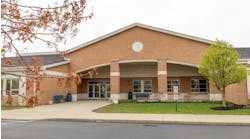At a time when skilled building technicians are in high demand, the industry is facing a serious labor shortage. With the current workforce nearing retirement age and fewer qualified candidates entering the field, the shortage is quickly becoming an industry crisis. To meet the needs of its growing service business, Johnson Controls is addressing this talent shortage with an innovative program designed to recruit and groom the next generation of HVAC technicians. The industry as a whole will benefit.
An industry-wide shortage
According to employment projections reported by the U.S. Department of Labor Statistics, the total number of HVAC-related skilled trade positions will jump from 291,000 in 2006 to more than 317,000 by 2016, and 22,000 of these positions will go unfilled each year. Why is this happening? There are several contributing factors. Aging baby boomers officially reach the retirement age of 62 in 2008, and many have already started to leave the workforce. The following generation will fall 10 million short of the baby boomer total, leaving a worker shortage across the board. And while the pool of these skilled workers diminishes, the need for them continues to grow.
In recent years, skyrocketing energy prices have increased the demand for cost-effective and efficient facilities. This trend has led to rapid growth at Johnson Controls. In fact, more than 3,500 technicians will be hired in the next three years and many will support the growing service business. But recruiting from a limited talent pool was no longer enough. Johnson Controls needed to find a new way to fill these openings with qualified candidates by increasing the number of HVAC program graduates entering the workforce.
Furthermore, America's education system has become out of sync with workforce needs. Studies show that America is turning out more college graduates than the workforce demands and the economy only generates enough work for about half of the people who earn a four-year degree. On the other hand, there is increasing demand for skilled workers. Misconceptions about the manufacturing industry and skilled trades, coupled with minimal exposure to technical careers at the middle and high school level, are contributing to the shortage of skilled workers. As a result, industries that require technically trained workers are suffering from a shortage of candidates.
Program overview
In 2004, Johnson Controls had a vision that would begin to turn the industry landscape around. The goal was to create a program where students would learn from Johnson Controls training materials, industry experts and equipment. Early exposure to Johnson Controls translated into a high level of brand equity among the technicians of tomorrow and also enabled the company to recruit, develop and retain the top talent to hit the marketplace. This vision grew into the CareerConnect program.
Through the program, branch offices located throughout North America team with select colleges that offer top-quality associate degree programs in HVAC technology to:
Enhance student curriculum
Promote faculty development
Raise community awareness
Develop a pipeline of recruits
CareerConnect enables Johnson Controls to donate resources, equipment and training tools to its partner schools. Additionally, faculty members can access discounted technical training at Johnson Controls Institute locations. The program also boasts deliverables aimed at raising awareness about the HVAC industry and careers in local communities. In return, Johnson Controls gains access to up-and-coming skilled technicians, helping to accommodate hiring needs. To date, Johnson Controls has hired nearly 60 students from its partner colleges.
“The CareerConnect model is one that works,” said Gary Beier, development director for Wisconsin Automobile and Truck Dealers Association. “The program exemplifies a local commitment to education and the community, and is bringing job candidates in a time when good technical help is hard to find.”
Strategy guarantees jobs
Students enrolled in HVAC programs at CareerConnect schools will also be eligible for the Future Hires Program. Launched in 2007, the program guarantees jobs for select, exceptional HVAC students and allows Johnson Controls to bolster their technician workforce with new program graduates.
Each year, Johnson Controls may select up to five students from each CareerConnect partner school to participate in the program. Selected students will be guaranteed a technician job upon graduation, enjoy tuition aid that supports academic costs of their second year of education and be given a relocation package if they are required to move.
Knowing that a job is waiting for you after you graduate is a big draw for many students. Johnson Controls also benefits as we shorten our recruiting cycle, reduce our recruiting costs and know when this new talent will be joining our organization.
CareerConnect schools benefit from the program in many ways. Through this multi-year business partnership, they gain access to new learning tools, industry experts and new technology and equipment. Partner schools can also utilize the Future Hires Program to boost HVAC program enrollment.
“When an employer is willing to guarantee jobs for our graduates, we've got a great story to tell the local community,” said Dr. Clyde Perry, division chair for GateWay Community College in Phoenix. “I expect that we'll see higher HVAC program enrollment in the fall semester due in large part to the Future Hires Program.”
Student benefits include improved employability upon graduation, reduced college debt due to scholarships and tuition aid, early consideration for open positions and guaranteed jobs with a Fortune 500 company.
To date, seven educational institutions across North America have partnered with Johnson Controls through the CareerConnect program, and more colleges are currently being considered as program candidates.
CareerConnect has brought a renewed interest to the HVAC field, and in turn, is helping to develop a pipeline of new recruits for an industry in dire need. Students who graduate from a CareerConnect partner school will be among the best candidates the industry has to offer. As a result, the entire service industry can reap the benefits of an enlarging talent pool.
Shannon Lippold is the CareerConnect program manager for Johnson Controls Inc. in Oshkosh, Wis. She can be reached at [email protected].

